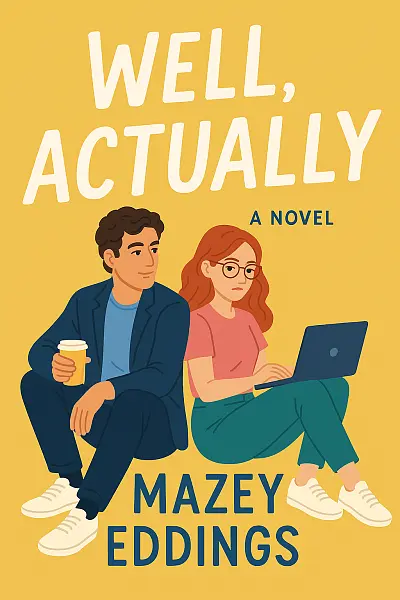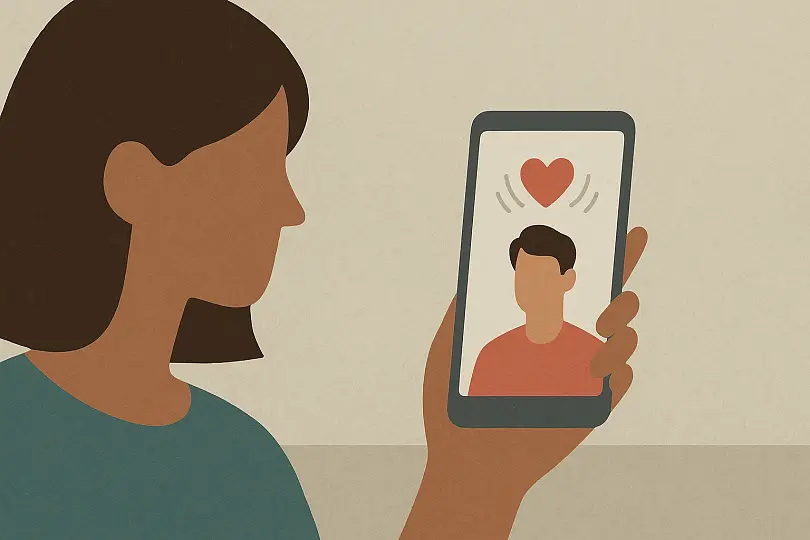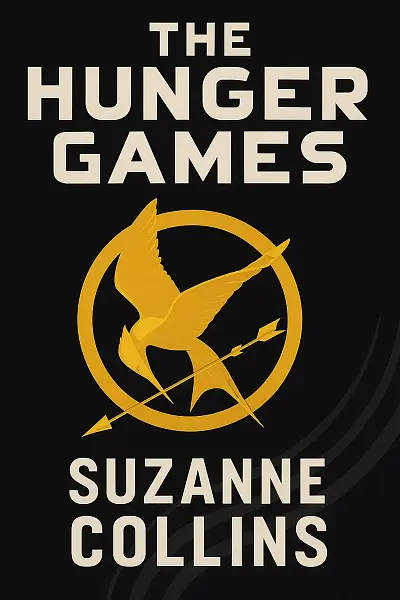
Well, Actually
by: Mazey Eddings
Elliot is just trying to survive her day-to-day when she goes accidentally viral for calling out her college ex-situationship, who’s now all over the internet as a reformed guru on toxic masculinity. Suddenly thrust into the spotlight, she and her ex have to pretend to date—publicly—to save their reputations. Every forced smile and awkward photo op ramps up the tension between them, blurring lines between revenge and maybe something real.
Packed with witty banter and pop-culture vibes, the story nails the messy chaos of internet drama and second chances. Will they combust…or actually click for real this time?
""Sometimes the bravest thing you can do is let someone see the parts of yourself you’re still learning to accept.""
Let's Break This Down
The Author's Voice
Atmosphere
- Bright, contemporary energy: Expect a mix of quirky banter and genuine heart, with lively urban backdrops that pulse with possibility.
- Emotional intimacy shines: Even amid the humor, there’s a warmth in the quieter moments, letting you really sink into the characters’ inner worlds.
Prose Style
- Conversational and irreverent: Mazey Eddings writes how real people talk—think clever repartee, offbeat asides, and honest, sometimes self-deprecating humor.
- Effortless flow: Sentences zip along with a breezy rhythm, making the pages easy to turn and the dialogue pop.
- Empathetic inner voice: Eddings doesn’t shy away from vulnerability, adding raw, honest layers to the romantic highs and lows.
Pacing
- Snappy and fast-moving: The story doesn’t linger—dialogue is quick-witted, scenes shift smoothly, and there’s little meandering.
- Rom-com beats front and center: There’s always something happening, whether it’s romantic tension, a comedic mishap, or an awkward encounter—expect steady momentum with minimal lull.
Characterization
- Relatable, messy, lovable heroes: The leads are distinct, flawed (in the best way), and easy to root for, with quirks that feel refreshingly real.
- Side cast with flair: Even supporting characters have spark, making the world feel full and dynamic.
Dialogue
- Sharp, funny exchanges: Dialogue is a major highlight—snarky, charming, and sometimes bracingly honest, it amplifies both the humor and emotional stakes.
- Authenticity reigns: Every conversation feels like one you’ve overheard in a coffee shop or fired off in a text thread with friends.
Overall Mood
- Uplifting with just enough ache: There’s an infectious optimism here, but Eddings balances laughter with vulnerability, delivering both light fun and genuine emotional resonance.
- Ideal for fans of character-driven, modern rom-coms who crave wit and warmth in equal measure.
Key Moments
-
Fiercely witty banter between Jude and Ari that crackles off the page
-
ADHD representation so real it feels like Mazey Eddings peeked into your brain
-
That frantic karaoke scene—chaos, vulnerability, and unexpected confessions
-
Mental health advocacy seamlessly woven into laugh-out-loud moments
-
Real talk about messy family ties and the bittersweet sting of letting go
-
Unapologetically nerdy podcast dreams collide with romance in the most endearing way
-
A meet-cute gone off the rails—awkward, authentic, and totally unforgettable
Plot Summary
Well, Actually follows Dr. Cora Burrows, a sharp-tongued, neurodivergent dental student navigating the chaos of academia, social life, and internet fame. After a viral debate with the witty, enigmatic Ari Kim, an ex-hockey player turned disability advocate, Cora finds herself reluctantly drafted onto Ari’s podcast team to discuss ableism and neurodiversity. As their banter escalates from snarky to sincere, Cora and Ari form a deeply personal connection, but ghosts from Ari’s past—family tragedy and unresolved guilt—threaten to unravel their growing bond. The duo faces professional setbacks, social media storms, and deep-seated insecurities before reaching an emotionally vulnerable climax where they must decide whether to allow their differences to unite or divide them. Ultimately, Cora and Ari choose vulnerability over fear, embracing both romantic love and radical self-acceptance.
Character Analysis
Cora starts as guarded, self-deprecating, and fiercely independent, often employing sarcasm as armor to hide her internal anxieties and sensory struggles with autism. Through her friendship and eventual romance with Ari, she learns to voice her needs more openly and trust others with her authentic self. Ari, shaped by the trauma of leaving sports after his injury and coping with grief, initially hides behind charm and activism but slowly reveals deep insecurities and a longing for connection. Both characters grow significantly—Cora finds the confidence to advocate for herself both online and offline, while Ari learns to forgive himself and embrace love again. Their arcs reflect a mutual journey from self-protection to genuine intimacy.
Major Themes
The book thoughtfully explores neurodiversity and disability rights, using Cora’s and Ari’s experiences to call out ableism in both daily life and digital spaces. Authenticity and vulnerability drive the story, as both protagonists must drop their emotional masks to foster real intimacy. Eddings also delves into the dangers and double-edged nature of internet culture, highlighting how online activism can both empower and harm. For example, after Cora goes viral, she faces public scrutiny and trolling, illustrating how social media shapes (and often distorts) narratives around disability. The power of chosen family and supportive friendships also shines through, especially as Cora builds a community that truly understands her.
Literary Techniques & Style
Mazey Eddings's writing sparkles with witty banter, using sharp dialogue to reveal complex emotions and character chemistry. The alternating first-person POVs offer intimate glimpses into both Cora’s and Ari’s minds while maintaining distinct narrative voices. Metaphors about dental care and hockey cleverly underscore themes of protection, damage, and healing—Cora’s meticulous routines mirror her need for control, while Ari’s hockey metaphors symbolize resilience and facing pain head-on. Subtle symbolism emerges in the recurring motifs of masks and comment threads, representing characters’ struggles with authenticity, perception, and communication.
Historical/Cultural Context
Set in contemporary urban America, the story unfolds amid vibrant online communities and current conversations about disability, neurodiversity, and internet celebrity. The novel’s backdrop reflects the growing visibility of neurodivergent voices and the prominence of social justice discourse on platforms like Twitter and podcasts. Modern academic structures and the pressures of higher education inform much of Cora’s journey, while the nuances of Korean-American culture shape Ari’s character and his family relationships.
Critical Significance & Impact
Well, Actually stands out for its honest, nuanced representation of neurodiversity and disability within the rom-com genre, earning praise for balancing humor with insightful social commentary. The book resonates with a generation deeply engaged in social media discourse and eager for authentic, diverse storytelling in romance. Its blend of internet culture and emotional vulnerability positions it as a relevant, relatable text with lasting appeal for readers who crave representation, wit, and a heartfelt message about belonging.

Neurodivergent romance finds laughter and honesty in unexpected places
What Readers Are Saying
Right for You If
Okay, so here’s who I think will absolutely love picking up Well, Actually by Mazey Eddings:
-
Hopeless romantics, unite! If you’re drawn to witty banter, authentic messy feelings, and the kind of chemistry that makes you grin at the page, this is 100% for you. Fans of rom-coms with substance—think Abby Jimenez, Emily Henry, or even Ali Hazelwood—you’ll find a lot to love here.
-
Anyone who appreciates neurodivergent and chronic illness rep will probably find this book both validating and refreshing. The characters aren’t “inspirational” stereotypes—they’re real, flawed, and deeply relatable.
-
If you like your romance with actual heart and know that life is messy and relationships are hard, this one gets it. There’s mental health rep, sarcasm, internet culture, and a realistic look at navigating boundaries—all wrapped up in Eddings’ signature humor.
-
Big fan of pop culture, fandoms, or just unapologetically nerdy vibes? You’ll spot yourself or your besties in these pages.
-
If audio dramas, podcasts, or nerdy internet spaces are your jam, there’s a subplot here that’ll feel super familiar and fun.
Now, real talk:
-
If you’re someone who prefers your romance light, fluffy, and totally escapist—with very little angst or emotional baggage—you might find parts of this heavier than you’d like.
-
If chronic illness, mental health, or messy inner worlds aren’t what you want in your romance reads right now, or if you need a classic “hero saves the day” dynamic, this might not hit your sweet spot.
-
Also, if you roll your eyes at geeky subculture references or just want straightforward, drama-free love stories, this may not be your cup of tea.
So, quick recap:
If you want a romance that’s charming and honest about life’s chaos—plus some very cute, totally relatable nerdy vibes—give it a go. But if you’re after total escapism or don’t want to dive into anything intense, maybe keep this one for another day.
What You're Getting Into
Well, Actually by Mazey Eddings sweeps you into the chaotic, laugh-out-loud world of a neurodivergent gamer journalist who’s trying to balance real-life struggles, online fame, and an unexpected romance.
When a viral moment upends her career, she’s forced to navigate the tricky waters of Internet stardom and a complicated partnership with a charming fellow gamer—sparks definitely fly, but so do old anxieties and messy secrets.
With sharp banter, heart, and plenty of authentic geekiness, this book dives into love, mental health, and the journey to owning your own story—always with a wink and a whole lot of heart.
Characters You'll Meet
-
Lizzie Blake: The neurodivergent, quick-witted protagonist grappling with ADHD and a history of not fitting into social expectations. Her journey is about embracing vulnerability and redefining love and self-worth.
-
Rakesh “Rake” Durrani: The gentle, nerdy romantic lead who unexpectedly finds himself drawn to Lizzie. His arc centers on overcoming his commitment issues and learning to truly open up.
-
Marya: Lizzie’s fiercely loyal best friend, serving as her anchor and source of pragmatic advice. She’s vital for her unwavering encouragement and support throughout Lizzie’s chaotic adventures.
-
Sam: A charming side character and one of Rake’s closest friends, often providing comic relief and honest insight. He helps move the plot along and offers perspective on relationships and trust.
-
Grandma Joan: Lizzie’s loving grandmother whose tough love and wisdom influence Lizzie’s choices. She represents acceptance and generational understanding in the story.
More Like This
If you found yourself swooning over the neurodiverse romance and sparkling banter in The Kiss Quotient by Helen Hoang, you’ll likely adore how Well, Actually crafts heartfelt connections between beautifully imperfect characters facing their own quirks and challenges. There’s a refreshing authenticity to the way Mazey Eddings handles vulnerability and humor, which often reminds me of Beach Read by Emily Henry—the ability to balance emotional depth with genuinely witty, laugh-out-loud moments makes each page fly by, while still giving you all the warm fuzzies and food for thought you’d expect from modern love stories.
In terms of on-screen vibes, Well, Actually totally echoes the charming sincerity and slow-burn chemistry found in The Big Bang Theory, especially in how it playfully navigates the ups and downs of relationships involving neurodivergence. The gentle, offbeat humor, coupled with moments of real self-discovery, captures that same blend of heartfelt awkwardness and genuine connection that makes the show so beloved. For anyone who craves romance that’s smart, snappy, and bursting with heart, Eddings’s latest is a delightful pick.
Critic's Corner
What if the line between exposing someone and exposing yourself is thinner than a smartphone screen? Mazey Eddings’ Well, Actually asks us to consider how online callouts spiral beyond our control—and whether redemption can ever be more than a trending hashtag. In a world where viral moments can define lives, Eddings puts the stakes of “going public” under a microscope, revealing the messy, hopeful chaos of modern love at the intersection of self-advocacy and spectacle.
The writing in Well, Actually sizzles with infectious wit and relentless energy. Eddings’ voice is razor-sharp yet never heavy-handed—a sweet spot for contemporary romance. Her dialogue feels alive: quick banter ricochets with authenticity, while internal monologues capture the anxiety and awkwardness of high-stakes public scrutiny. Chapters move at a breezy pace, alternating perspectives to peel back emotional layers without losing momentum. Eddings’ metaphors can sometimes run cheeky, pushing into over-quirky territory, but overall her prose remains inviting and vibrant. The novel leverages social media not just as a plot device but also as a narrative technique, smattering screenshots, text threads, and viral tweets throughout. This clever integration builds both intimacy and immediacy, grounding the reader in the claustrophobia of online virality without losing the rom-com’s sunny heart.
At its core, Well, Actually interrogates performative feminism, public accountability, and the commodification of private pain. Eddings does more than lampoon internet callout culture; she leans into its ambiguities, forcing characters (and readers) to confront whether justice is possible in spaces built on spectacle. The dynamic between the protagonist and her ex isn’t just about romantic chemistry—it’s a cage match between curated personas and authentic selves. Eddings accomplishes something rare for the genre: she refuses to grant easy forgiveness or blanket condemnation, focusing instead on the uncomfortable labor of growth under public gaze. The book navigates questions of agency, consent, and the real costs of “good optics,” pushing the reader to consider who benefits when pain becomes content and who gets left behind when apologies go viral.
Within the rom-com landscape, Well, Actually stands out as a savvy, self-aware entry—equal parts swoon and sharp social observation. Fans of Ali Hazelwood or Rachel Lynn Solomon will appreciate its blend of millennial anxiety and heartfelt repartee, while longtime Eddings readers will note her signature blend of snark and sincerity, honed here with added bite. The use of the fake-dating trope feels especially timely, riffing on the weaponization of relationships in public life, a subject few romantic comedies tackle with such directness.
That said, some secondary characters lack the nuance of the leads, occasionally falling into archetypal “internet friend” roles rather than distinct voices. The book’s relentless pace, while fun, sometimes sacrifices emotional quiet for comic effect. Still, Well, Actually is whip-smart, irresistibly readable, and—most importantly—fearless in its interrogation of romance as both spectacle and refuge. For modern love in the age of exposure, it’s a bold, buzzy must-read.
Community Thoughts
Not me, wide awake at 3 am because Rae’s awkward banter and endless sarcasm just WOULD NOT LET MY BRAIN REST. This book hijacked my schedule and I regret nothing.
okay but Catriona is LIVING RENT FREE in my head now, I just wanted to read a cute romcom and instead I’m emotionally invested in her journey and now can’t look at my DnD dice without thinking of her awkward charm.
Wait, can we talk about Ciaran for a second? Because that dude is living rent-free in my head. His vulnerability and banter got me way more invested than I expected. Mazey Eddings, please explain yourself.
honestly, that scene with Jamie and the gaming headset? i still think about it randomly. it was so raw and awkwardly perfect, like i was eavesdropping on a real argument. Mazey Eddings, how dare you make me FEEL things with pixels and words?
Not gonna lie, I stayed up WAY too late thinking about Cora. That whole scene with the online gaming chat? Ugh, my heart did laps. I kept whispering "just kiss already" to my Kindle. Mazey Eddings, you absolute menace.
Leave Your Review
Local Take
Why It Matters
Well, Actually by Mazey Eddings feels surprisingly relatable for readers here! The book’s deep-dive into neurodiversity and mental health opens up conversations that resonate, especially with our growing focus on inclusivity and dismantling social stigma.
- The online harassment Lucy faces parallels local debates about digital safety and toxic internet culture—so those plot points hit home.
- Her journey of self-acceptance clashes a bit with our tradition of “saving face” and collective values, but it also inspires younger readers eager to break free from old norms.
There’s a playful, almost rom-com warmth that echoes our love of witty banter in contemporary fiction, yet Eddings challenges conventions by giving neurodivergent voices center stage. If you’re into stories that bravely question societal expectations while making you laugh and reflect, this one’s a standout!
Food for Thought
Notable Achievement:
Well, Actually by Mazey Eddings has been widely celebrated for its authentic representation of neurodivergent characters and witty rom-com banter, quickly winning a devoted following among romance readers and sparking conversations about inclusivity in contemporary fiction.
The book’s blend of humor, heartfelt moments, and meaningful neurodiversity themes has made it a standout favorite in recent romance releases.
Like what you see? Share it with other readers







